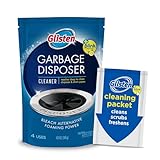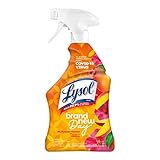
Imagine stepping out of the immaculate dental clinic, where your pearly whites have just received their much-needed pampering session. The wheels of your mind spin, contemplating the intricate rhythm between oral hygiene and satiating your taste buds with mouthwatering morsels. Yet, the question lingers, when can you dive back into the sumptuous world of culinary delights?
When it comes to timing your next gastronomic adventure after the rejuvenating cleanse of your dental masterpiece, it’s crucial to strike a harmonious balance. You might find yourself pondering over the duration required for your teeth to recharge before surrendering to the tantalizing array of flavors that await you. Let us decode the intricate process of post-cleaning nourishment without mentioning the temporal conundrum that stands between you and your edible desires.
It is an intricate dance of patience and self-discipline, an artful interplay between the various elements that influence the consumption timeline. Within the labyrinth of dental semantics, understanding the vital signs of your oral cavity’s revival is key. Delve into this article where we untangle the intricate tapestry of gastronomic indulgence after a dental rendezvous, guiding you towards that perfect moment when your taste buds and your freshly cleaned teeth can harmoniously unite.
When Can You Indulge in a Meal After Your Dental Cleaning?
Once your dental cleaning session is complete, it’s essential to be mindful of the time frame before you can satisfactorily enjoy a meal. Understanding the appropriate waiting period and considering certain factors is crucial for optimal oral health.
Eating Right After a Dental Cleaning: The Basics
Immediately consuming food after a dental cleaning might not be the wisest choice for maintaining the results of your procedure. Your dental professional would generally advise against indulging in a meal right away to allow your mouth to recuperate and fully benefit from the cleaning. Certain precautions need to be taken to minimize any potential discomfort or damage while eating.
Factors Determining the Waiting Period
Various factors influence the length of time you should wait before eating after a teeth cleaning. The thoroughness of your cleaning, the presence of any underlying dental issues, and your personal oral sensitivity are significant considerations. Additionally, the type of cleaning, such as a routine cleaning or a deep cleaning, may influence the amount of time you should wait before eating.
| Factors to Consider | Waiting Period Recommendation |
|---|---|
| Intensity of cleaning | Wait at least 30 minutes to an hour |
| Presence of dental issues | Consult with your dentist for personalized recommendations |
| Personal oral sensitivity | Wait until any numbness subsides completely |
| Type of cleaning procedure | Follow your dentist’s specific instructions accordingly |
It’s crucial to keep in mind that your dental professional’s recommendations might vary based on your unique situation. Therefore, always consult with your dentist to receive personalized advice and specific waiting period instructions.
The Significance of Diet Following a Dental Cleaning
Proper nutrition plays a vital role in maintaining oral health and is particularly essential after undergoing a dental cleaning procedure. The food choices you make immediately following a professional teeth cleaning session can impact your overall dental well-being, influencing factors such as healing, gum health, and tooth sensitivity. This section will delve into the significance of making informed dietary decisions post teeth cleaning, exploring how certain food choices can support and maintain the benefits achieved through the cleaning process.
Enhancing Healing and Reduction of Discomfort
Choosing the right foods after a teeth cleaning can aid in the healing process and minimize any potential discomfort or sensitivity experienced. Opting for softer food options that are gentle on the gums and teeth may assist in reducing irritation and inflammation, allowing the gums to heal efficiently. Foods with a cool or lukewarm temperature can also help alleviate any lingering discomfort caused by the cleaning procedure.
Sustaining Gum Health and Fighting Bacterial Growth
The diet adopted after a dental cleaning can help sustain optimal gum health by avoiding or reducing the consumption of foods that might contribute to bacterial growth and plaque accumulation. Foods high in sugar, refined carbohydrates, and acidic content can promote the development of harmful bacteria in the mouth, leading to gum disease and tooth decay. Instead, incorporating nutrient-rich foods such as fruits, vegetables, lean proteins, and dairy products can provide essential vitamins and minerals, promoting gum health and preventing further oral complications.
Timing is Key: When Can You Indulge in Food Following a Dental Hygiene Session?
Properly timed meals are crucial after completing your dental maintenance session, also often referred to as oral prophylaxis. This article will guide you through the recommended period you should wait before nourishing your body with food after a thorough teeth cleaning procedure.
Following a teeth cleaning session, you may be eager to satiate your hunger with a delicious meal. However, ensuring an appropriate time gap between your dental appointment and your next eating session is essential to maintain the benefits of the cleaning process.
As synonymous with oral hygiene, dental cleaning removes plaque, tartar, and stains from your teeth, leaving your mouth feeling refreshed and your teeth cleaner than ever before. The cleaning process involves the use of various instruments, including scalers and polishers, to carefully eliminate any buildup and achieve a pristine oral environment. Consequently, giving your teeth the time they need to settle and recover post-cleaning is crucial.
The duration you should wait before consuming food may vary depending on the individual and the intensity of the cleaning procedure. Dentists typically recommend a waiting period of at least one to two hours before eating. This time frame allows your teeth and gums to recover from any potential sensitivity caused during the cleaning process. Additionally, it allows your saliva to rebuild its natural protective properties, ensuring optimum defense against oral bacteria.
While it may be tempting to dive into your favorite meal right after leaving the dental office, it’s essential to resist the temptation and prioritize your oral health. Optimal timing for your next meal ensures that the cleaning benefits are retained, promoting better oral hygiene in the long run.
If you experience any prolonged post-cleaning discomfort or have specific dental conditions, it is advisable to consult with your dentist for personalized recommendations on when you can safely eat after your teeth cleaning procedure.
Recommended Foods to Enjoy After a Professional Dental Cleaning
When it comes to nourishing your body after undergoing a dental cleaning procedure, it is important to choose the right foods that promote oral health and aid in the recovery process. The type of food you consume can have a significant impact on the healing and health of your teeth and gums. This section will explore recommended food choices to consider after a thorough teeth cleaning, ensuring you make thoughtful decisions for a speedy recovery.
The Power of Soft Foods
After a teeth cleaning, it is best to stick to soft foods that do not require excessive chewing or put too much strain on your teeth and gums. Opting for softer options can help prevent any possible discomfort or irritation while allowing your mouth to heal properly. Some examples of gentle and easy-to-eat foods include:
- Soups: Nourishing and comforting, a warm bowl of soup can be an excellent choice. Opt for broths, vegetable-based soups, or pureed soups without any hard ingredients that could potentially get stuck in the teeth.
- Smoothies: Packed with vitamins and minerals, smoothies can be a refreshing and nutritious option. Blend together fruits, yogurt, and leafy greens for a tasty beverage that is easy to consume.
- Puddings and Yogurts: These creamy treats can provide both pleasure and sustenance for your healing mouth. Look for varieties without added sugars or crunchy toppings.
The Benefits of Nutrient-Rich Foods
Incorporating nutrient-rich foods into your post-dental cleaning diet can help support overall oral health and speed up the healing process. These foods can provide essential vitamins and minerals that promote strong teeth and gums. Consider including the following options:
- Leafy Greens: Spinach, kale, and other leafy greens are excellent sources of vitamins A and C, which are crucial for gum health and tissue repair.
- Lean Proteins: Foods like chicken, fish, and tofu are rich in phosphorus, an essential mineral for strengthening tooth enamel and preventing tooth decay.
- Crunchy Fruits and Vegetables: Apples, carrots, and celery can act as natural toothbrushes, stimulating saliva production and gently scrubbing away plaque.
- Dairy Products: Milk, cheese, and yogurt are high in calcium, which promotes strong teeth and jawbone health. Additionally, they contain casein, a protein that helps protect tooth enamel from acid erosion.
Remember, it is important to listen to your body and avoid any foods that may cause discomfort or irritation. It is also recommended to avoid sticky and sugary snacks, as they can increase the risk of plaque buildup and tooth decay. By making mindful food choices, you can support the healing process and maintain optimal oral health after a professional teeth cleaning.
Foods to Avoid After a Teeth Cleaning: The Bad and The Sticky
After getting your teeth cleaned, it is important to be mindful of the types of foods you consume in order to maintain your oral health. Certain foods can have a negative impact on your teeth and gums, especially right after a cleaning. In order to avoid any potential issues, it is recommended to avoid certain foods that are known to be bad or sticky.
Here are some types of foods to avoid after your teeth cleaning:
- Sugary treats: Consuming foods high in sugar can promote the growth of bacteria in your mouth, leading to tooth decay. Avoid candies, cakes, cookies, and sugary beverages.
- Hard and crunchy foods: Chewing on hard and crunchy foods can put stress on your teeth and potentially damage them. Stay away from hard candies, nuts, popcorn, and ice.
- Acidic foods and drinks: Acidic foods can erode the enamel of your teeth, making them more susceptible to cavities. Limit your consumption of citrus fruits, tomatoes, vinegars, and acidic beverages like soda and sports drinks.
- Sticky foods: Sticky foods can easily get lodged in between your teeth and gums, increasing the risk of plaque buildup and gum disease. Avoid foods like caramel, taffy, dried fruits, and chewy candies.
- Hot and spicy foods: These types of foods can cause sensitivity and discomfort, especially if your gums are still sensitive from the teeth cleaning. Skip hot soups, spicy sauces, and foods with excessive spices for a day or two.
By avoiding these bad and sticky foods after a teeth cleaning, you can help maintain the cleanliness of your teeth, prevent cavities, and promote overall oral health. Remember to consult with your dentist for any specific dietary recommendations based on your individual needs and oral condition.









